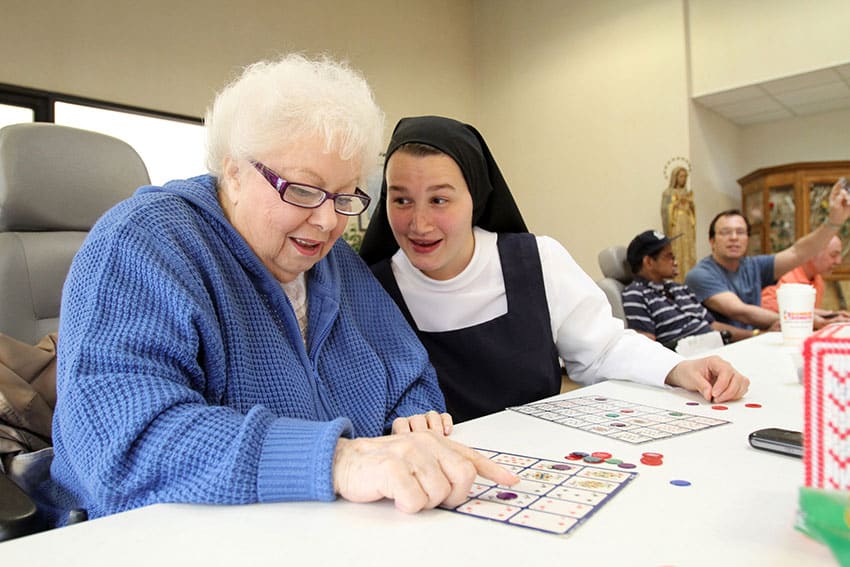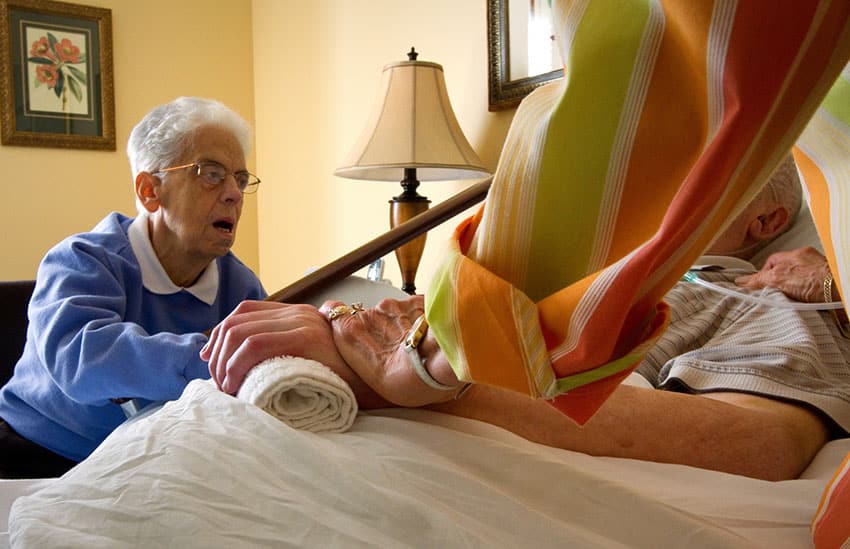
By Dr Bernadette Tobin
A thought experiment
Daniel Sulmasy, a Catholic medical doctor and philosopher who works at Georgetown University in Washington DC, once invited us to consider the following scenario.
Imagine, he said, that the majority of a population believed that female genital mutilation (so-called ‘female circumcision’) should be available to those who seek it. Suppose that, as a consequence, the parliament in that jurisdiction legalised this ‘service’ under certain conditions.
Would it be legitimate for the government to compel all publicly-funded hospitals to provide the service?
Or, if a publicly-funded institution had an ethical objection to providing the service, would it be legitimate for the government to compel the hospital’s doctors to refer those who seek the service to colleagues who would be willing to provide it?
The Labor Party’s u-turn on abortion
Sulmasy’s ‘thought experiment’ came to mind recently when the Labour Party announced that, were it to win the federal election, it would use federal funds to exert pressure on all public hospitals to provide abortions.

Two days later, the ALP backed off, and made reassuring noises. ‘Obviously, not every hospital provides every medical procedure – for example, not every hospital does brain surgery or heart surgery. That’s the same for terminations’, said an official for the Party’s health spokeswoman.[1]
So the claim, that with public funding comes an expectation that every public hospital will provide every available procedure, is in truth little more than a slogan, one which obscures the very different reasons why a particular hospital might not conduct certain procedures.
It’s true that Catholic hospitals do not provide abortions, that is, ‘procedures, treatments or medications whose primary purpose or sole immediate effect is to terminate the life of a foetus or of an embryo before or after implantation’.
Ethics matter
I quote that definition from our Code of Ethics for two reasons. First, because the definition is accompanied by an explanation for this part of the institutional ethic of Catholic hospitals, that is, that ‘Such procedures … involve the direct and deliberate killing of an innocent human life in the earliest stages of development.’
Second, because the definition helps to distinguish deliberate terminations from other procedures with which they are sometimes confused, that is, emergency procedures needed to save the life of the mother or her baby or both.
Doctors in Catholic hospitals which act in accordance with the Code of Ethics may legitimately attempt to cure a serious pathological condition of a pregnant woman in circumstances in which the intervention cannot be safely postponed until after the baby is viable. In that circumstance, the doctor foresees, but does not intend, the death of the baby. So, let’s set aside the furphy that Catholic hospitals don’t provide needed treatment in emergency circumstances.
Victoria’s Voluntary Assisted Dying legislation

This ‘storm in an election teacup’ nonetheless has significance in Victoria. In 2017 the Victorian Government legalised what it confusingly labelled ‘voluntary assisted dying’ (VAD). On 19 June, in a little less than two months, the legislation will come into effect.
Of course, when their patients are dying, the much-loved Catholic hospitals in Victoria assist their patients to die in comfort and with dignity. That is precisely what they are doing when they provide palliative medicine and care! But they do not and will not assist them to end their own lives by issuing prescriptions for lethal drugs nor intentionally end their patients’ lives by administering lethal injections (which is what the label ‘voluntary assisted dying’ actually refers to!).
The Victorian legislation protects conscientious objection on the part of individual practitioners: they cannot be forced to provide information or support for VAD, nor to assess a person for VAD, nor to supply or give the ‘medication’ for VAD.
In addition, the Victorian Health Department has backed up the reassurances made by the parliamentarians over and over again in the debates which preceded the passing of the Bill, that health services will not be forced to participate in the provision of the procedures.
Indeed, the Health Department acknowledges that one reason why a health service might decide not to participate in the provision of this procedure is that it does not align ‘with the values of the health service’.[2]
Inverting the Hippocratic Oath
In passing, let us note the cruel if not bizarre irony that health professionals in Victoria are now said to “conscientiously object” when they are simply following the traditional Hippocratic ethic of doing no harm to their patients!
In recognising that doctor-assisted suicide (so-called ‘voluntary assisted dying’) may not align with the ‘values of a health service’, the Victorian Health Department implies that institutions as well as individuals have consciences. Which raises the question: How should we understand the nature of conscience?
In this regard, a remark of the unambivalently pro-choice feminist Naomi Wolf is worth recalling. She once said that it is more truthful to speak of a woman’s decision to have an abortion not as an ‘intensely personal choice’ (which, as she pointed out, makes it sound like the woman is deciding on a carpet!), but as a genuinely grave decision about right and wrong.[3]
That is instructive. In a truly conscientious decision a person tries to get a decision right, tries to grasp the truth of what is right or wrong in their situation.
Clearly, individuals have consciences. What about institutions?
Sulmasy implies that they do. That’s why he invited us to consider his thought experiment about female genital mutilation.[4]
Indeed, we should not marginalise those – individuals or institutions – who reject female mutilation by calling them ‘conscientious objectors’. Rather we should applaud them for holding to the truth. So too with those Victorians who, against the spirit of the times, reject doctor-assisted suicide!
Bernadette Tobin is director of the Plunkett Centre for Ethics, a joint centre of Australian Catholic University, St Vincent’s Health Network and Calvary Healthcare.
[1] ALP abortion reform excludes Catholic hospitals. The Age, 8th March 2019
[2] https://www2.health.vic.gov.au/hospitals-and-health-services/patient-care/end-of-life-care/voluntary-assisted-dying/health-practitioners; accessed 16th March 2019
[3] Naomi Wolf. Our bodies, our souls: rethinking pro-choice rhetoric. New Republic, 16 October 1995
[4] Daniel P. Sulmasy. What is conscience and why is respect for it so important? Theor Med Bioeth (2008) 29: 135-149
